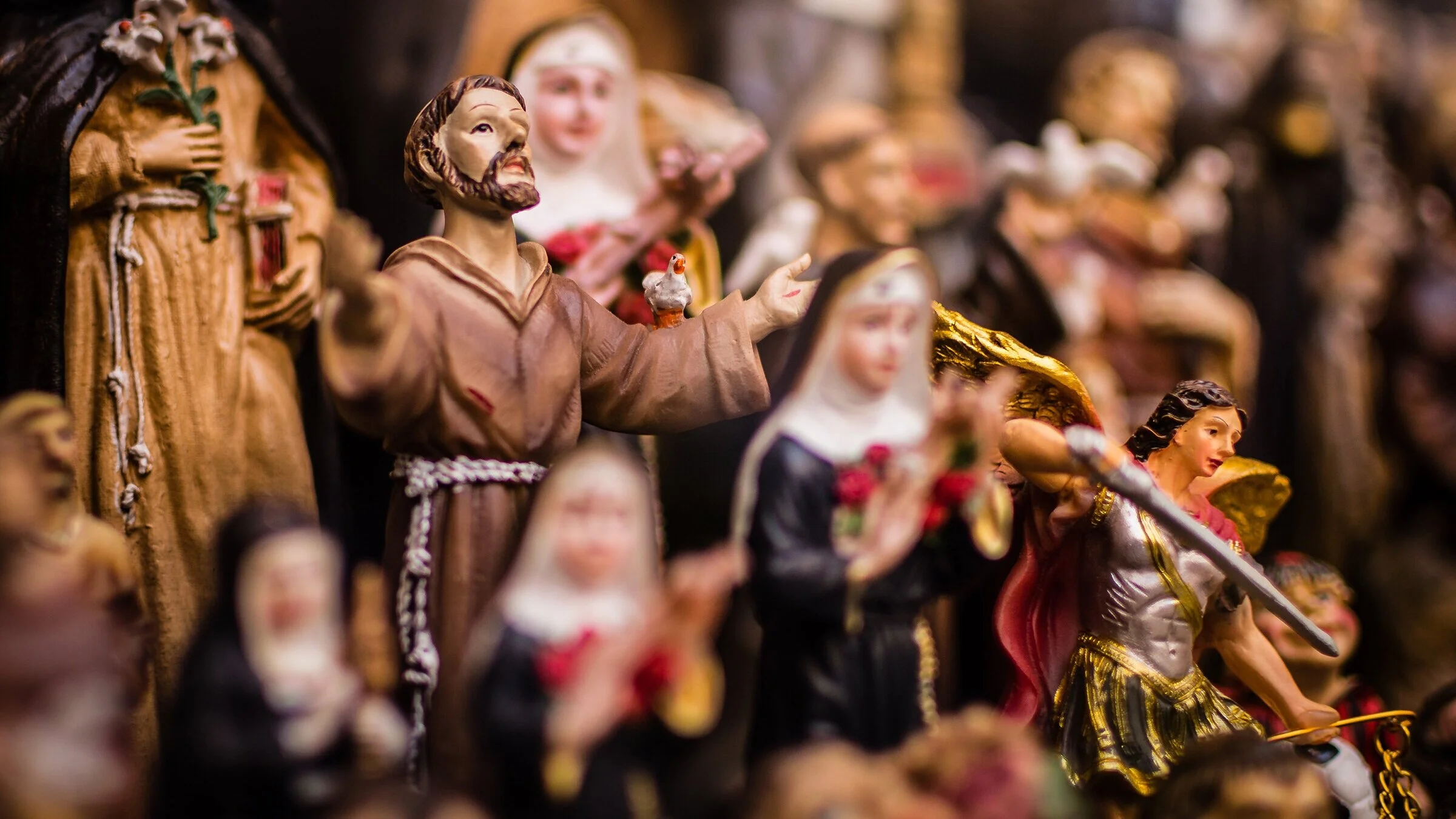spiritual works of mercy
Admonish the sinner
Instruct the ignorant
Counsel the doubtful
Comfort the sorrowful
Bear wrongs patiently
Forgive all injuries
Pray for the living and the dead
corporal works of mercy
Feed the hungry
Give drink to the thirsty
Clothe the naked
Visit the imprisoned
Shelter the homeless
Visit the sick
Bury the dead
For most people, the Feast of St. Francis may slip silently by each October 4 without much notice. It is one of the most important days of the year for our Franciscan religious community, a time of special prayer and ceremony. The general public may not realize that they, too, are practicing what Francis preached when they show kindness to animals, donate to the poor, or making loving gestures toward Mother Nature.
Some of our Sisters homebound by COVID precautions will not celebrate the perennial rituals honoring Francis for a second year, at least by traditional means. The evening of October 3 would usually be reserved for the Transitus, a reenactment of the final hours of Francis’ life in 1226. While current circumstances limit how we observe the annual feastday, those same circumstances allow for deeper reflection on Francis’ message and how we can practice it year round.
“During this time of isolation, many opportunities to follow Francis present themselves,” says Sister Cecilia Jacko. “This time is a good opportunity to look into the life of St. Francis and let him show me. ‘What would Francis do in these times?’”
“Remember that when you leave this earth, you can take with you nothing that you have received — only what you have given; a full heart, enriched by honest service, love, sacrifice and courage.”
There is no time like the present to learn more about the spiritual and corporal works of mercy, to act on environmental issues in our own small way, and to appreciate the suffering of those less fortunate.
“I think the greatest gift to our world that everyone can give is to seriously prioritize our needs and wants,” suggests Sister Barbara Ann Webster, whose hobby is to repurpose common household objects into environmentally-friendly crafts. “If everyone would eliminate just one Starbuck’s coffee or soda from the vending machine and put that amount aside for the poor, how many folks in need could have a meal?”
Shopping at thrift stores, cooking creatively with leftovers, recycling and using fewer resources are ways that we all can walk with Francis. Perspective also matters when modeling Francis, such as foregoing complaints about inconsequential things and taking time to realize that so many more have so much less.
“I walk in the footsteps of Francis, always aware that I am a witness to his poor and humble life,” says Sister Barbara Ann. “As such, I need to lead others to his way of life. Even if we just tip-toe in his footsteps, it will make a difference.”
s. norberta kralosky
“The more I reflect on St. Francis, the more I respect him and his way of life. He regarded the poor, especially lepers, as folks in need and let others see how God blessed people who are kind. What a good example he was for others.”
s. irene novak
“Since he peacefully and successfully rebelled against the trends of his time, I wonder what he would suggest to help us be sincere followers of Jesus, rather than honor popular trends.”
s. francis
marie duncan
“I believe that I most fell in love with St. Francis because of his love of poverty. His outreach to those on the edge of society, like the leper, attracted me most to him. I always have had a special love in my heart for the poor, and I long for a simpler way of life.”
s. amata shina
“As a Franciscan, I am called to live out our charism — living in intimate union with Christ in the midst of apostolic work. It is a continuous conversion. It is the work of a lifetime.”
s. rosalia giba
“I became a School Sister of St. Francis because I witnessed the spirituality of Francis in the Sisters that taught me — gentleness, love of nature, kindness.”
s. barbara
ann webster
“In moments of decision, I’ll ask, ‘What would Francis do?’ I’ll put things in Francis’ hands and ask for guidance. In moments of joy and sorrow, Francis is my spiritual mentor.”
S. marian
sgriccia
“I admire St. Francis for his humility and for his willingness to serve others.”
s. bonnie marie kleinschuster
“As God continually enlightened his heart and mind, Francis turned from rebuilding ruined churches to ‘Building with Living Stones.’ How many times did he ask the question, ‘Lord what do you want me to do?’”












